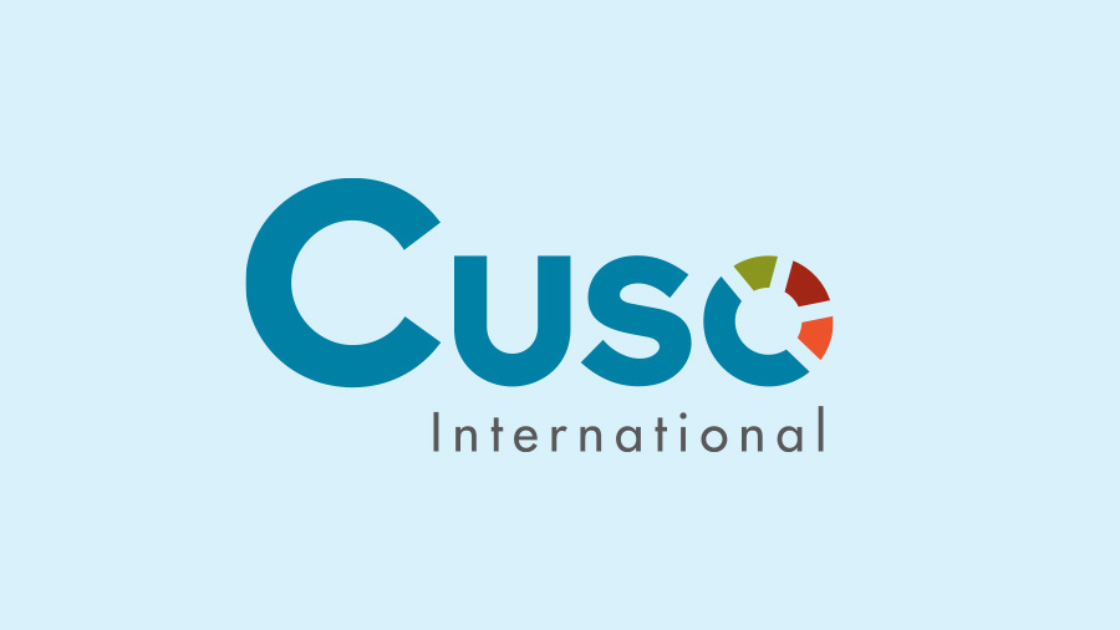Many Canadians Unaware of Canada’s International Development Efforts
News

Roughly a third say their understanding has improved or has remained the same in the past two years.
Ottawa, Ontario, February 7, 2022 – Although Canada has made headway in addressing aspects of its international development efforts as underscored by Canada’s Feminist International Assistance Policy (FIAP), including the promotion of gender equity, humanitarian, peace and security assistance, many Canadians are unaware of the country’s attempts to highlight such efforts. Over six in ten (64%) Canadians say they are unaware of Canada’s international development efforts.
The findings were identified in a November 2022 poll commissioned by Cuso International, a non-profit international development and cooperation organization based in Canada with operations in 17 countries.
“Canada’s international assistance makes a huge difference to improve the living conditions of people around the globe. Canadians have every reason to be proud of the positive impact of our country in building a better, fairer and more sustainable world, said Nicolas Moyer, Chief Executive Officer, Cuso International. “We know that by understanding how local issues relate to global issues, Canadians will be inclined to take actions that will contribute to a peaceful, prosperous and inclusive world.”
More than a third of Canadians report their understanding has improved regarding gender equity, climate and human rights
When asked to gauge their understanding of Canada’s international development efforts compared to two years ago, more than a third of Canadians report their understanding has improved regarding gender equity(37%), environment and climate (29%) and human rights and inclusion (35%).
“ We are pleased to see more Canadians aware of the work underway to advance gender equity, combat climate degradation and advance human rights, and inclusion – it is something Cuso International has recommitted its efforts for the years ahead,” said Nicolas Moyer.
When looking at demographic divides, Canadians between the ages of 18-34 (46%) and 35-54 (40%) tend to be more aware of international development efforts, whereas those 55 years and older (26%) are less aware. Regionally, residents in Alberta (42%), British Columbia (38%), Saskatchewan, Manitoba (36%), Ontario (41%) and Atlantic Canada (41%) are more aware of international development efforts, compared to Quebec residents (24%).
Over half (53%) said Canada should invest in the prevention of gender-based violence.
Canadians were also asked about their understanding of the Feminist International Assistance Policy (FIAP) that was launched in 2017, a policy that champions global gender equity. When asked to prioritize a list of seven topics, 53% of Canadians said Canada should invest its international development in the prevention of gender-based violence, particularly against women and girls. Close behind was increased access to sexual and reproductive health rights for women and girls (48%). Over half (56%) of women said Canada should invest in the prevention of gender-based violence compared to 50% of men, as well as those over the age of 55 years (57%) compared to 18-34 (50%) and 35-54 (53%).
Canadians between the ages of 18-34 (47%) and 35-54 (37%) are more likely to say their understanding of gender equity has improved compared to those aged 55 years and older (28%).
When it comes to prioritizing certain programming for Canada’s international development and cooperation efforts, 16% said the focus should be on increased access and education of sexual and reproductive rights.
About the study
These are some of the findings of an Ipsos poll conducted between November 3rd to November 7th, 2022, on behalf of Cuso International. For this survey, a sample of 2,005 Canadians aged 18+ was interviewed. Quotas and weighting were employed to ensure that the sample’s composition reflects that of the Canadian population according to census parameters. The precision of Ipsos online polls is measured using a credibility interval. In this case, the poll is accurate to within ± 2.5 percentage points, 19 times out of 20, had all Canadians aged 18+ been polled. The credibility interval will be wider among subsets of the population. All sample surveys and polls may be subject to other sources of error, including, but not limited to coverage error, and measurement error.
For more information on this news release, please contact:
Eileen Melnick McCarthy, Cuso International
eileen.melick@cusointernational.org
Account Manager, Ipsos Public Affairs
About Cuso International
Cuso International is an international cooperation and development organization that works to create economic and social opportunities for underserved groups. Together with our partners, we are focused on efforts to advance gender equity and social inclusion, improve economic resilience, and deliver progress on climate action. We believe that by sharing skills, we can build better futures. Founded in 1961, Cuso International works in Africa, Latin America and the Caribbean, and Canada. Registered Charitable Numbers:
Canada 81111 6813 RR0001
United States EIN 30-0545486
About Ipsos
Ipsos is the world’s third largest market research company, present in 90 markets and employing more than 18,000 people.
Our passionately curious research professionals, analysts and scientists have built unique multi-specialist capabilities that provide true understanding and powerful insights into the actions, opinions and motivations of citizens, consumers, patients, customers or employees. We serve more than 5000 clients across the world with 75 business solutions.
Founded in France in 1975, Ipsos is listed on the Euronext Paris since July 1st, 1999. The company is part of the SBF 120 and the Mid-60 index and is eligible for the Deferred Settlement Service (SRD).
ISIN code FR0000073298, Reuters ISOS.PA, Bloomberg IPS:FP